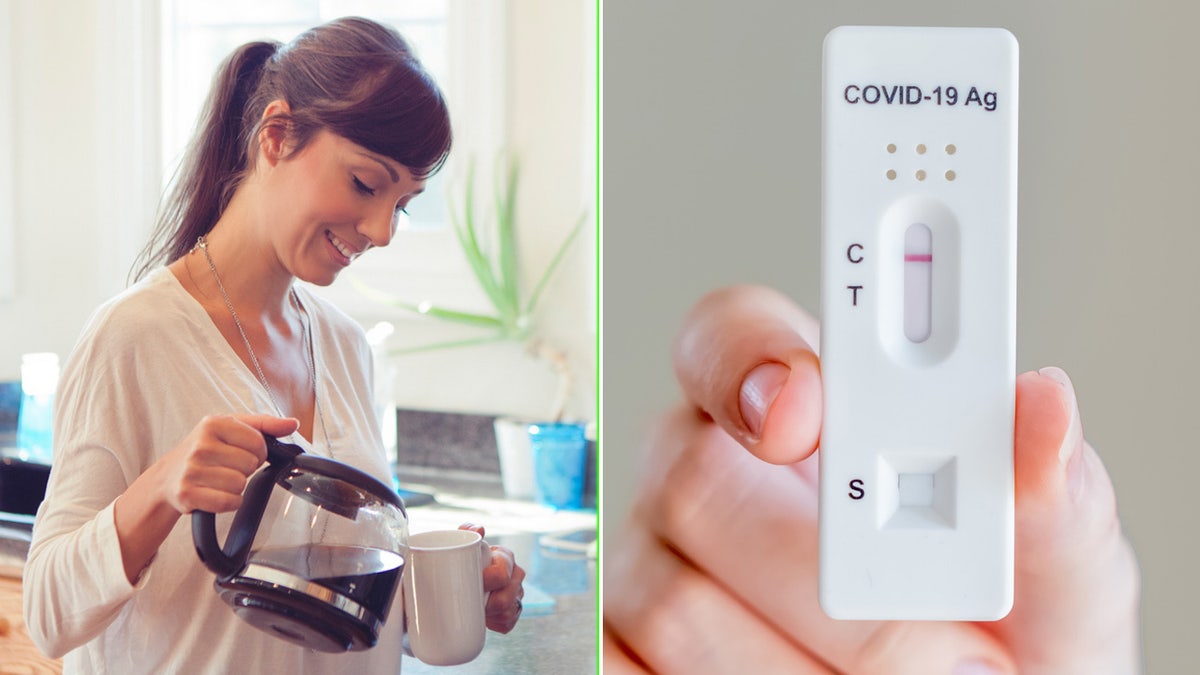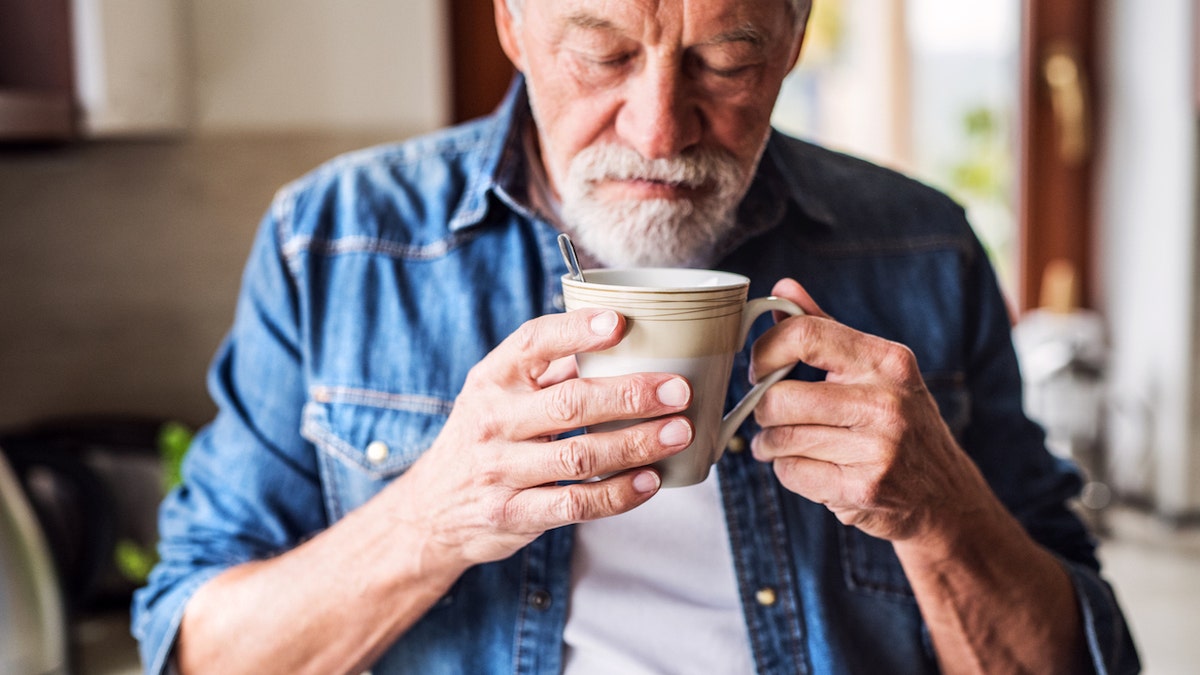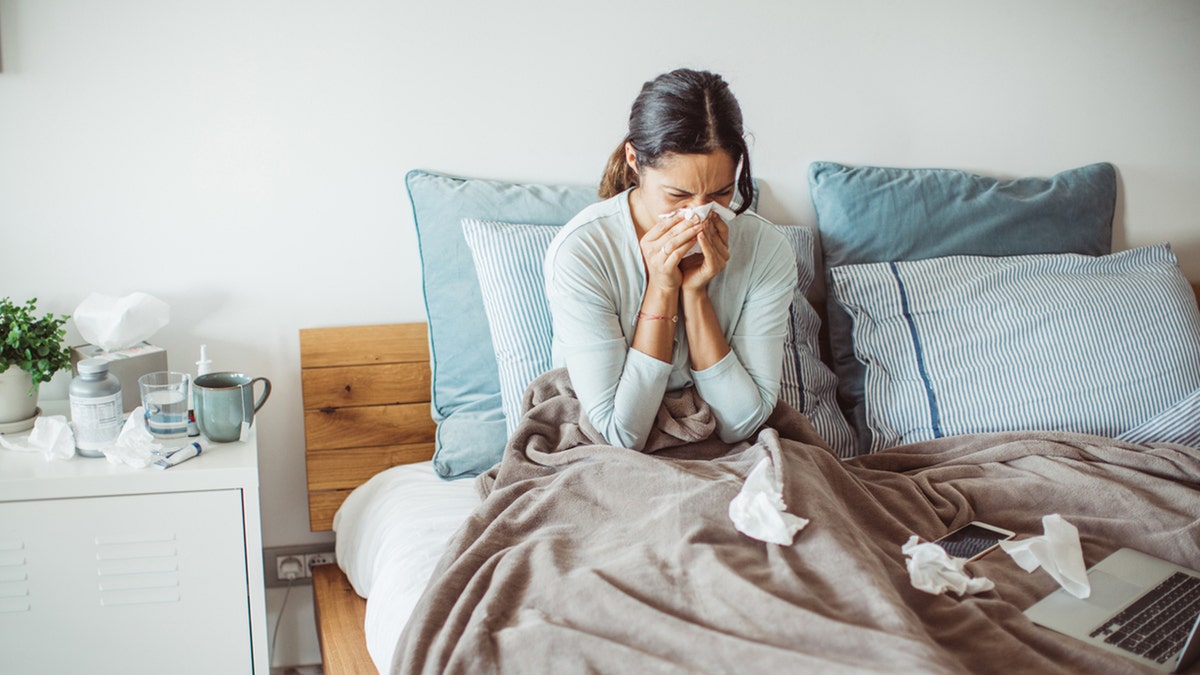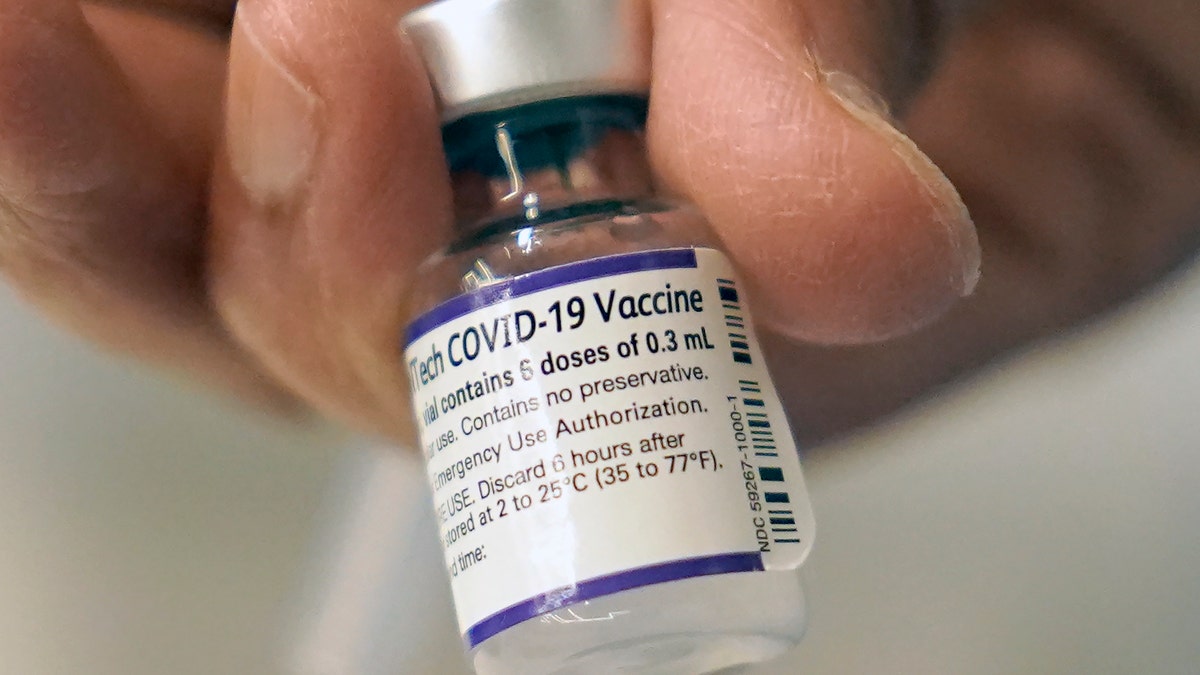Florida surgeon general warns against COVID vaccine
Dr. Joseph Ladapo tells Fox News Digital why he believes the new vaccine is a "terrible idea" and a "major safety concern"
Your daily cup of coffee could potentially double as COVID protection, a new study from China Medical University is suggesting.
Previous research has shown that a diet rich in polyphenols — a class of compounds found in many plant foods that act as antioxidants — could boost the immune system and reduce the risk of severe disease.
Given that coffee contains many polyphenols, researchers looked into whether consuming the beverage could reduce the risk of severe COVID illness.
DRINKING AN EXTRA CUP OF COFFEE PER DAY COULD HELP WITH WEIGHT MANAGEMENT, STUDY FINDS
Evaluating a group of 64 adult participants, the researchers determined that consuming one to two cups of coffee per day helped to prevent infection by multiple COVID variants.
The results were published in the journal Cell and Bioscience on Nov. 16.

Drinking coffee could double as COVID protection, a new study from China Medical University has suggested. Two medical experts weighed in with thoughts and insights. (iStock)
Both ground coffee and instant coffee were found to have benefits, as was decaffeinated coffee.
The coffee prevented entry of the SARS-CoV-2 infection by keeping the virus from entering host cells.
SHOULD YOU GET THE COVID AND FLU VACCINES AT THE SAME TIME?
It did this by blocking the spike protein on SARS-COV-2 from binding to the enzyme ACE2, which is the primary receptor for the COVID-19 virus and is found in the lungs.
It also reduced the activity of proteins and enzymes that are associated with severe COVID illness.
"This study verified that moderate coffee consumption, including decaffeination, can provide a new guideline for the prevention of SARS-CoV-2," the study authors wrote.
"Based on the results, we also suggest a coffee-drinking plan for people to prevent infection in the post-COVID-19 era."

Previous research has shown that a diet rich in polyphenols — a class of compounds found in many plant foods that act as antioxidants — could boost the immune system and reduce the risk of severe disease. (iStock)
Dr. Marc Siegel, clinical professor of medicine at NYU Langone Medical Center and a Fox News medical contributor, was not involved in the study but offered his insights.
"Coffee contains many active ingredients that have been shown to be good for health — polyphenols and antioxidants," he told Fox News Digital.
A prior study from the UK Biobank showed a 10% decrease in infection rate among coffee drinkers with COVID, Siegel pointed out.
"The current study from Taiwan is well done, but it raises more questions than it answers," he went on, noting that there was a "very small" group of human subjects.

More studies need to be done before people conclude that coffee is actually protective against COVID infection, one doctor said. (iStock)
"While the mechanism for uptake at the ACE2 cells appears very accurate, a pseudovirus is used, which has similar genetic material and antigen as the virus, but cannot be the exact same as the virus itself," Siegel pointed out.
More studies need to be done before people conclude that coffee is actually protective against COVID infection, the doctor said.
"Also, coffee may increase stomach acidity, and there has been a connection drawn between COVID and increased stomach problems (GERD)," Siegel noted.

Given that coffee contains many polyphenols, researchers looked into whether consuming the beverage could reduce the risk of severe COVID illness. (iStock)
Early research during the pandemic has also suggested that decreased stomach acidity may lead to better outcomes with COVID, he added — "so this is a complex area."
Dr. Renuga Vivekanandan, an infectious disease expert, physician and the director of Antimicrobial Stewardship and Hospital Epidemiology at CHI Health Creighton University Medical Center – Bergan Mercy in Omaha, Nebraska, also offered reaction to the study.
CLICK HERE TO SIGN UP FOR OUR HEALTH NEWSLETTER
She was not involved in the research.
"The study proposes some interesting concepts about how coffee can help prevent or reduce the risk of COVID-19 severity," she told Fox News Digital.

An infectious disease expert told Fox News Digital that the best way to prevent infection is vaccination. (AP Photo/Steven Senne)
Vivekanandan, however, echoed Siegel’s comments that the data needs to be replicated in a larger-scale study before a conclusion is drawn.
"What really works well to prevent COVID-19 infection is vaccination, which produces very effective antibodies to protect against acquiring or decreasing severe COVID-19 infection," she said.
CLICK HERE TO GET THE FOX NEWS APP
"If someone acquires infection, they can take Paxlovid or Remdesivir antiviral agents, which can work to decrease the infection severity," she said.
"These are proven over many studies, and strong data support the notion that COVID-19 vaccines and the antivirals we currently have provide good protection against COVID-19 infection."
Fox News Digital reached out to the study authors for comment.









































